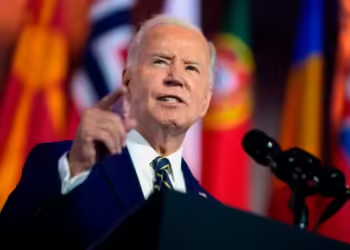UN Libya envoy quits weeks before planned election
UN special envoy Jan Kubis’s resignation accepted a month before a scheduled presidential election in Libya.
Aljazeera
The United Nations Libya mediator Jan Kubis is stepping down, a UN spokesman said on Tuesday, less than a year after he took up the role and a month before planned elections in the country.
UN Secretary-General Antonio Guterres accepted Kubis’s resignation “with regret,” spokesman Stephane Dujarric said on Tuesday. When asked when Kubis would leave, Dujarric said: “Mr Kubis has made it clear that he’s not slamming the door today.”
“He, more than anyone, does not want to have the mission destabilised in any way, shape or form,” he said.
“The secretary-general is working on an appropriate replacement. We are fully aware of the electoral calendar and are working as quickly as possible to ensure continuity of leadership,” Dujarric said.
The UN is informally suggesting veteran British diplomat Nicholas Kay as a replacement, the Reuters news agency reported, citing diplomats. The 15-member UN Security Council, operating by consensus, must approve a new appointment.
Kubis is a former Slovak foreign minister who has also served as the UN special coordinator for Lebanon and the UN special envoy in Afghanistan and Iraq. The Security Council approved his appointment as Libya mediator in January, succeeding Ghassan Salame, who quit in March 2020 due to stress.
It was not immediately clear why Kubis was stepping down. Al Jazeera’s Diplomatic Editor James Bays, reporting from the UN building in New York, said UN officials and Security Council diplomats were shocked he was leaving at this moment.
“The fact that he’s leaving a month before the elections does really beg a lot of questions. Despite me pressing the UN repeatedly to detail his reasons, we’re not being given any reasons at all,” Bays said.
“The only thing I’ve been told by some diplomats is that Kubis is not in perfect health and was happy enough to do the job in Geneva but might not be fit enough to do the job in Tripoli.”
Kubis is based in Geneva, and according to Bays, the UN was planning to find a new envoy to be based in Tripoli.
Libya descended into chaos after the NATO-backed overthrow of longtime ruler Muammar Gaddafi in 2011. In October last year, the two major sides in Libya’s war – the internationally recognised Government of National Accord and renegade commander Khalifa Haftar’s eastern-based Libyan National Army – agreed to a ceasefire.
Parliamentary and presidential elections on December 24 were demanded by a UN political forum last year as part of a roadmap to end Libya’s civil war. However, disputes over the planned vote threaten to derail the peace process.
Nearly 100 candidates have registered to run in Libya’s presidential elections, including Haftar, transitional Prime Minister Abdul Hamid Dbeibah, and Saif al-Islam Gaddafi, the son of former leader Muammar Gaddafi.
Within days, an initial list of candidates is expected to be announced. After that, the commission will open a two-stage appeal process that will take 12 days before the final list of candidates is published, the head of the High National Election Commission, Emad al-Sayeh, told reporters.
The first round of the presidential election is scheduled for December 24 and parliamentary elections have been pushed to January or February. However, rules for the elections have not yet been agreed upon.









